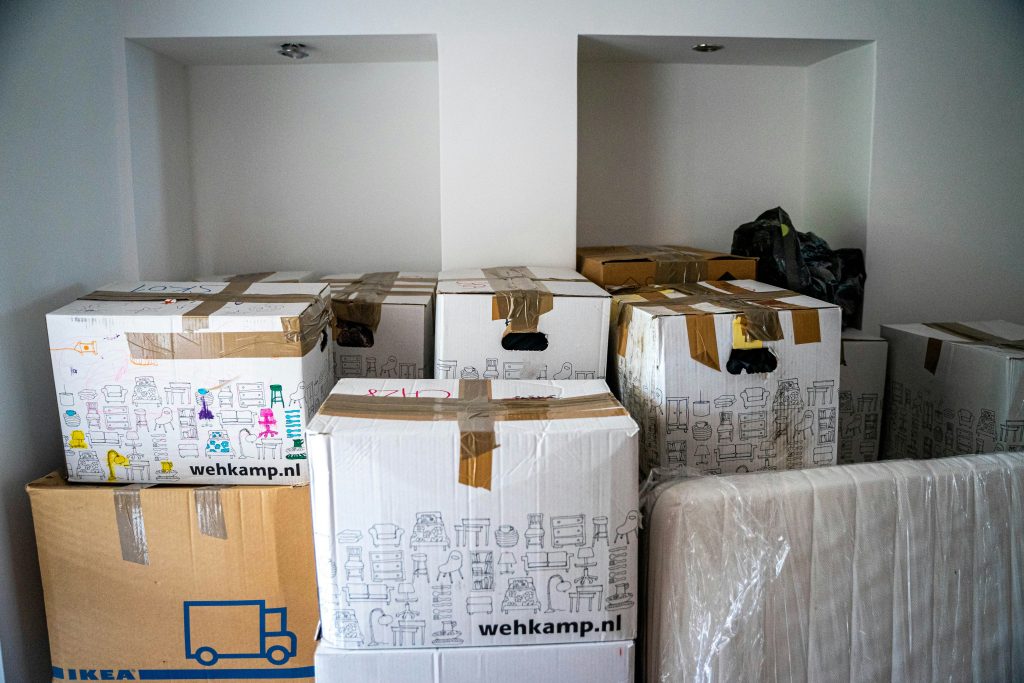The ordinary feminist: the relationship


In defiance of my general tendency towards being a tech nerd, I studied Art as one of my GCSEs in high school. One of our assignments was a painting featuring two or more human figures. As we were filling pages of paper with sketches of possible ideas, our teacher came over. ‘How wonderful’, he exclaimed in delight, looking at my best friend’s work. ‘I thought with a class full of girls everyone would be planning romantic themes, and here you are drawing rugby players!’.
Embarrassed, I looked down at my own page. A couple on a beach, holding hands while they gazed at the waves. A couple cuddled up side by side on a mountain top. A couple saying farewell at a train station. For all I thought of myself as liberated, I’d fallen completely in line with the teenage girl stereotype.
But that’s how I was, as a teenager. Obsessed with romance. All my friends were. We compared notes on the boys we fancied, wrote their initials in our pencil cases next to our cut-out pictures of Mel Gibson, Dean Cain and David Duchovny. During a sleepover, we rang up ‘The Love Hour’ on the local radio to declare our feelings in a suitably coded fashion (or so we thought: the next morning the entire class had already figured it out). We fantasized how a relationship might unfold, even planned our weddings.
I had to wait a long time for my romantic dreams to become reality, so long that I had already resigned myself to a lifetime of being alone. But when it finally happened, I was actually glad to be more mature, entering my relationship from a position of independence – own flat, own job, own car. I didn’t have to sit around giggling, waiting for the guy I liked to pass me a note in class or use one of my friends as a go-between. Instead I took the lead, flirting with him, offering him a lift home and inviting him to dinner. We alternated between staying at each other’s flats, making simple meals for each other, exploring London, going on bike rides, visiting pubs.
Very content with my equal relationship, I couldn’t help but feel a little sorry for some of my friends. The one who asked her boyfriend to cook their dinner, as she would be late from work, then arrived home to find him playing computer games. ‘Where’s dinner?’, she asked. ‘I got myself something from the chip shop’, was his nonchalant reply. Or the one whose fiancé, on a weekend visit to us in London, suddenly decided early Sunday morning that they must go home to visit his Nan, insisting his girlfriend pack up and leave without any breakfast. No, I was the lucky one. Getting my man hadn’t required me to give up one iota of my independence.
Then we moved in together.
From romance to reality

Time spent together had previously been special, devoted to having fun. Whereas living together included all the mundane parts of life – cooking, fixing things, cleaning, administration. We had to work out how to divide up those tasks – and the division we ended up with was not equal. For example, my partner has never learned to cook. When we stayed over at his flat, he made us a microwave curry, or we went out for dinner. Once we were living together, however, this was no longer an option, either finance- or healthwise. Someone need to cook. And that someone turned out to be me.
Then there was the cleaning. As a student, I’d lived in flats and houses where the communal spaces were sometimes pretty messy but well, we were students, who gave a toss? Once I acquired my own studio flat, it was pleasing to keep it neat and tidy, for my own comfort. Once I moved in with my partner, however, when friends and family came to visit I felt shame if the house wasn’t tidy. Even if I hadn’t made the mess. I felt that all eyes were directed solely at me, that it was my responsibility to have the place spick and span. My partner, on the other hand, felt no guilt whatsoever if the table was sticky or there were piles of crumbs accumulated underneath it.
Nor was household cleanliness the only arena in which I suddenly felt sole responsibility. Going to visit friends of my partner who had a new baby, I selected the gift. Heading off to stay with his parents, I insisted on stopping off to get flowers. Spotting worn patches in his jeans, I felt compelled to buy him new ones. Why on earth? He had survived perfectly well on his own without me, and if he hadn’t mastered certain tasks by now, they clearly weren’t important enough to him to bother.
I didn’t want this. I didn’t want to spend my evenings ticking off a to-do list while my partner was happily busy with his hobbies. This inequality was not my choice. But it wasn’t my partner’s choice either. He didn’t want me to be doing more than my fair share. In fact, he was very concerned that I was doing too much. ‘You work so hard’, was his constant refrain. So we set out to rediscover our equal relationship – and found out just how hard this was.
What is equality in a relationship?
Going back to basics for a moment, how do you actually determine equality in a relationship? The simplest option would be for each partner to do half of each type of task. But quite aside of the impracticality of constantly having to coordinate and switch, different people are better at different things. Tasks such as ringing around to book accommodation or handling tax declarations are easy for my partner, whereas they give me ulcers from stress. The situation is pretty much reversed when it comes to cooking; I am quite happy to stir a pot with a book in the other hand, while he gets in a tizzy about the exact amounts of the ingredients. We each automatically take on the tasks we prefer and somehow, I do a lot of the traditional female things, while he does a lot of the traditional male things. Why is this? Have our preferences been conditioned into us? Or is it simply how our personalities happen to be, and would we have the same preferences if our genders were reversed? Should I take on tasks I don’t like, and give up those I do, in order to deliberately defy traditional roles?
It certainly feels more comfortable if each partner does the tasks they are better at. But how do you then determine equal amounts of work? How does doing the taxes once a year – an infrequent but large, stressful task – weigh up against cooking every evening – a regular, small, low-stress task? You could divide the tasks so that each person is busy for the same amount of time. This seems very fair at first. But what about if one partner takes all day over tidying their sock drawer, while the other has the whole garden pruned and tidied in two hours? Is that fair?
Leaving aside those devilish accounting details, is it actually a good idea that the person who is more skilled at a task always does it? Isn’t there something to be said for learning a new skill? Particularly if that means we cross the traditional gender task boundaries. But as adults, we are very afraid of not doing things well, and the longer we put off trying them, the higher the threshold gets. This reluctance can be reinforced by impatient or perfectionist behavior from the more expert partner – ‘I’ll just do it myself’. Whereas a little patience to teach and a readiness to accept a lower standard than you are capable of yourself can give your partner more confidence and save yourself work.
Husband:
Am l getting the present?
Wife:Yeah. But nothing from China,
Date Night (2010)
nothing with batteries….
You know what? l’ll just get it.
lt’ll be easier.
Also, if we never do each other’s tasks, we never find out what they involve. This makes it very easy to underestimate the other person’s contribution. I see this in my professional life: in a project where our group of research engineers were cooperating with behavioural scientists, they thought we ‘just’ needed to build an app, while we thought they ‘just’ needed to write some user questionnaires. In a domestic situation where skills are not backed up by professional qualifications, it is even easier to brush off your partner’s contribution as being trivial.
The Task Radar
However you calculate the equal division of work, a basic prerequisite is knowing which tasks there are to be done. I think that a big mistake made in many relationships – certainly in my own – is the assumption that this is obvious. Therefore if your partner isn’t doing a task, it must be because they’re being lazy. This ignores the fact that we are all brought up in different families, with different norms about household tasks. If your parents never made a fuss about the dog hairs on the carpet, there’s a good chance you don’t even notice them. Or if they always did the vacuuming, then dog hairs on the carpet simply don’t trigger any need for action from you. This goes for both men and women. But in general, girls tend to be brought up to help out in the house more, and get scolded if they don’t. So, while an unvacuumed floor may be a neutral feature of the surroundings for a man, for a woman it can trigger immediate anxiety at the thought of the disapproval they will face if they don’t sort it out. As a result, women are more likely to have these tasks high on their radar, while they may not even register for the man. This is understandable. But it’s not fair.
So, how do you solve these blind spots? For many men (including Jason Manford), the answer is simple – ‘Let me know if I can help!’. It’s certainly what my partner said. But, as this wonderful comic strip explains, doing so piles all the work of managing the household onto the woman. They then have to handle this ‘mental load’ on top of the work they are already doing. If one person is going to do all the management, then it logically follows that the other should actually take on more of the work itself, to compensate. I certainly don’t expect my manager at work to do a full share of programming as well. Alternatively, the other partner needs to boost their radar and learn to take on some household management themselves, spotting what needs to be done and doing it.
Just as in the situation where one partner is more skilled than the other, this takes time and effort from both sides. It requires that the ‘managed’ partner takes on a more active role, thinking for themselves about what might need to be done, instead of passively waiting to be told. But crucially, it also requires the ‘manager’ to take a step back and wait for the other partner to pick up the task. Not do it themselves. Nor keep reminding their partner to do it. This can be quite stressful, especially when there are consequences involved. Yet at the same time, letting the ‘car crash’ happen can be the best way to help them learn. There’s nothing like not having any clean clothes left to impress upon you the need to do the washing regularly, or discovering that there is no food for dinner to drive home the need to plan ahead.
Husband:
I know you work hard, honey.
Date Night (2010)
But you know what would
make all the hard work 10 times easier?
Me.
lf you would just trust me enough
to handle things once in a while,
but, no, you don’t.
You have to do it all yourself, your way.
You got me screwing up before l even get
a chance to come through for you.
And, yeah, you know what?
Maybe, occasionally,
l might buy the toy made of Chinese lead,
or l might make a sandwich for Ollie
that, God forbid,
breaches the jelly perimeter,
but if you just let me do something for you,
l think that l would surprise you. l really do.
l know l’d surprise you.
Who sets the standard?
Sorting out task detection still assumes that both partners are in agreement that a task should be done. Going back to the dog hair example, the person brought up in the house where the carpets were inch-deep in dog hair may not only fail to detect the need to vacuum, they might actually believe it to be unnecessary to vacuum often. So what do you do if one partner wants to vacuum every day, while the other is happy with every week, or every month? Whose standard wins?
My partner has a lower standard in most matters of household cleanliness than I do. So I naturally felt that he needed to improve that. And he did – he cleans far more than he used to. But, at the same time, he challenged me to think about where my higher standards actually come from. I realized that my drive to clean sometimes came not from myself, but from hearing in my head what other women would think if they saw the state of the house. It wasn’t so much that I wanted it to be cleaner, more that I felt the weight of other’s expectations of cleanliness, and as a woman felt responsible for living up to them. With the exception of family visits, I now only clean the house when the state of it bothers me, not the critics in my head.
Accepting help
Along with persuading me that some tasks simply don’t need doing, my partner offers to take on more tasks himself. This is the point at which I realise just how hard it is to shake off gender conditioning. Because do I accept, happy that he is taking work off my hands? No – I refuse.
Why is this? Because I love him. And because I have been trained into the conviction that I should express that love by doing more for him than he does for me. In the past, the man was the breadwinner and the woman was the carer. Somehow, I’ve absorbed the message that I can also be the breadwinner, but not the message that I can give up being the carer. After all, I grew up with women who always gave more than they took, who subtly competed with each other to be the one who gave the most. Whereas a man who occasionally gave, or even just offered to give, was already praised to the heavens.
You could argue that this caring attitude isn’t something that is required by men, but that women choose it themselves. However, that is countered by what happened when I recently visited a festival together with my partner. One of the entertainers was a man who ‘designed’ a beer label for each of us. As part of the process, he asked each of us what the other’s best quality was. My partner described my best quality as ‘caring’. So sweet. But at the same time, it was a blow. Because if my best quality is being caring, how can I possibly choose equality above being caring without becoming less of the person he loves?
Who decides?

Equality in a relationship is not just about who does the work. An important factor is who gets to decide. Ideally, every decision would also be shared equally. But this is another area where I find it hard to bring idealism into practice. Because – to be perfectly honest – I hate making decisions. I’m too afraid of the consequences of getting it wrong, and I don’t like feeling responsible. Whereas my partner takes it all much less seriously. Also, he has strong opinions about most things, right down to the correct location to store the cutlery with the white handles as opposed to the cutlery with the metal handles. Whereas I often don’t care. The upshot is that my partner tends to make decisions more often. (I hasten to add that we make all really important decisions jointly). That mostly feels more comfortable to me. Yet at the same time, I fear slipping into the role of the subservient woman. Once again, it is tough weighing up my principles against my personal preferences.
Equality comes from within
In the end, regardless of how we share tasks and who makes the decisions, the ultimate question is: Do we regard each other as equal? This is the most nebulous of all to determine, as it is locked away inside our heads and hearts, and these are unknowable. Unknowable to others, but also often unknowable to ourselves. Why we do what we do, and what we truly feel about others, can be buried very deeply, and it may be only with the distance of time that we see it more clearly.
Intangible as it is, the belief in equality in a relationship is the basis of everything. How a couple gives that equality shape in their relationship depends on so many factors – personalities, abilities, available time, likes and dislikes. Equality looks different for every couple. But the form of that equality can also be distorted by prejudices and expectations that have been dinged into our heads since childhood. It is so hard to work out whether an ‘equal’ relationship is truly the best balance for both partners, or is an illusion of equality produced by our brainwashing.
I believe that my partner and I truly regard each other as equal. So while we are certainly locked in the gender wars, we are at least on the same side, struggling not against each other but against the prejudices and habits that have been conditioned into us. But what about people whose partners don’t actually regard them as equal in the first place? Then that whole complicated tangle of factors offers the perfect source of excuses for keeping the status quo.
‘But you love to cook’
‘I’m a financial expert so I’ll take care of the taxes, you’re an art teacher so you go clean the toilets’
‘I don’t care if the floors are vacuumed before our guests come, so if you want it done so badly then do it yourself’
‘I’m just hopeless at choosing clothes for the kids, you’re so much better at that’
While the well-intentioned partner honestly struggles with the complexities of equality, the ill-intentioned partner uses them as a smokescreen to hide the fact that they are perfectly happy to get a bigger slice of the pie.
Back to that art lesson so long ago. Once I became aware that I was conforming to the stereotype of a teenage girl, I scrapped my sketches and changed my theme to rockclimbers. The final painting didn’t turn out that well – I’m just not that interested in rockclimbing.
Now it’s up to me and my partner to pick up the brush and paint our relationship the way we want it to be. Neither blindly following gender stereotypes, nor artificially forcing ourselves to choose against our own happiness in order to present an acceptable image of equality to the outside world. Like a relationship itself, equality in a relationship is not something you get simply because you wish for it. It’s something you have to work at, together.

This post is part of the ‘Ordinary Feminist‘ series. The next post: The mother.